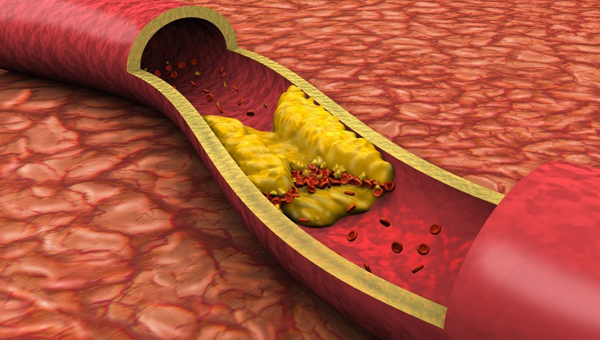
Atherosclerosis is a vascular disease when the walls of arteries thicken. The thickening is due to accumulation of fats like cholesterol and triglycerides. There is also an inflammatory response to this condition by macrophages, which are white blood cells of the immune system.
This condition is promoted by low density lipoproteins (LDL) that carry fats and triglycerides. Also, absence of high density lipoproteins (HDL) cholesterol can increase the condition because they actively remove cholesterol and fats.
Atherosclerosis can be prevented by keeping the cholesterol levels under 200 milligrams per deciliter of blood. Also, HDL levels should be higher than LDL levels. You can have these blood levels tested by seeing your doctor. A very minimal amount of blood needs to be drawn and sent to a lab to get the test done.
Atherosclerosis can thicken blood vessels to the point where blood can not flow through the vessel. The result can be fatal cardiac disease, stroke, or other issues.
 About Adam Pegg
About Adam Pegg



